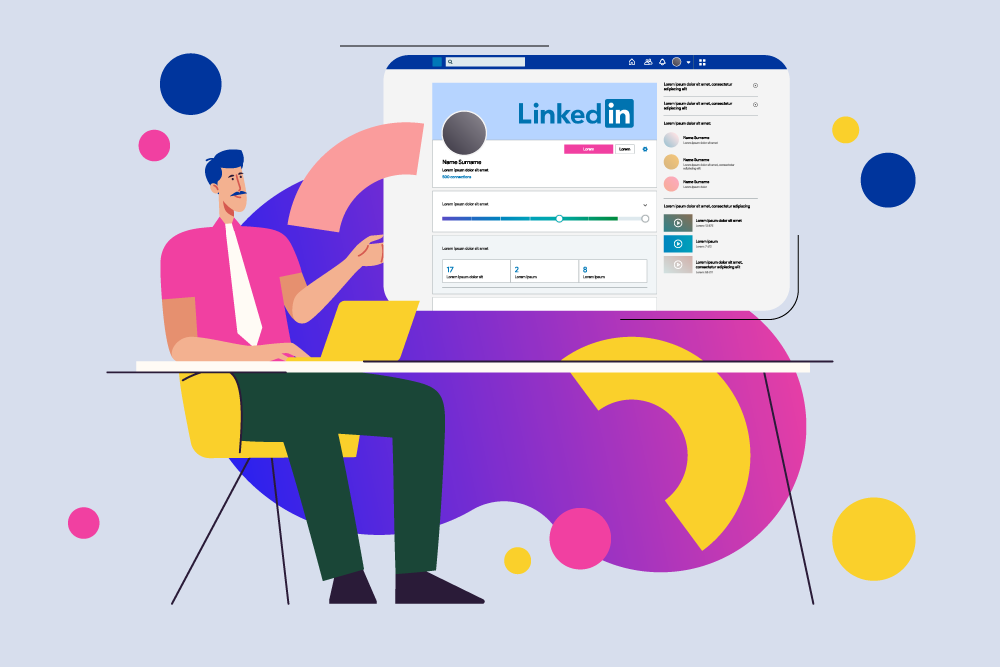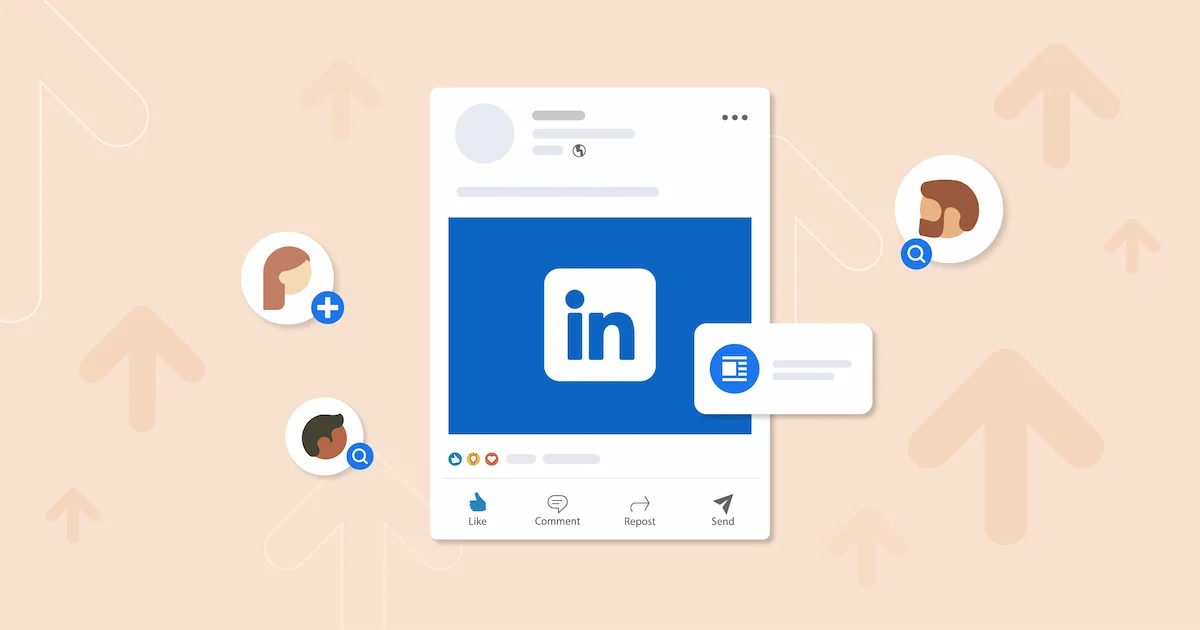How to Get Web Design Clients from LinkedIn: Proven Strategies to Grow Your Client Base Fast
Landing web design clients can feel like searching for a needle in a haystack but LinkedIn makes the hunt a whole lot easier. With millions of professionals connecting daily it’s become my go-to platform for growing my client base and building long-term relationships.
I’ve discovered that LinkedIn isn’t just a digital resume—it’s a powerful networking tool when you know how to use it right. By tapping into the right strategies I’ve been able to attract businesses that need my web design skills and turn simple conversations into paid projects. If you’re ready to level up your client list LinkedIn is where you should focus your efforts.
Understanding the Power of LinkedIn for Web Designers

LinkedIn functions as a dedicated marketplace for professionals, making it uniquely suited for web designers seeking clients. I use LinkedIn’s tools like filters, advanced search, and groups to focus on industries, roles, and companies that often require web design—examples include SaaS firms, marketing agencies, and local businesses. My niche targeting increases my outreach efficiency.
The platform provides social proof through recommendations, endorsements, and portfolio links. I strengthen credibility by asking satisfied clients to endorse my web design skills and write recommendations, linking each to completed projects. These elements help prospects verify my results with quantifiable examples.
Posting work samples, case studies, and actionable tips lets me increase visibility in search results and newsfeeds. Consistent activity signals expertise and availability to decision-makers. I notice higher engagement on content that addresses real business problems, like improving site conversions or redesigning interfaces for specific audiences.
Direct messaging offers a direct path to decision-makers. I analyze company pages and recent activity before sending connection requests, customizing my pitch to reference their posted challenges. This targeted approach results in higher response rates than generic outreach.
LinkedIn’s analytics tools help me track profile views, content engagement, and inbound inquiries. I adjust my messaging and posting strategy based on which visual portfolios or published posts attract more profile visits and responses from industry leaders.
| LinkedIn Feature | Impact on Client Acquisition for Web Designers | Example of Use Case |
|---|---|---|
| Advanced Search Filters | Narrows prospects by industry, location, decision-maker | Targeting casino marketing directors for redesign projects |
| Skills Endorsements | Builds fast credibility | Showcasing 10+ endorsements for UX/UI web design |
| Recommendations | Provides trusted proof of past project delivery | Linking new prospects to my casino landing page clients |
| Content Posting | Increases visibility to engaged businesses | Sharing casino homepage redesign case study |
| Direct Messaging | Enables tailored pitches to prospects | Pitching web revamp to casino operators found via search |
Optimizing Your LinkedIn Profile for Client Attraction

Optimizing my LinkedIn profile increases visibility to businesses searching for web design solutions. Specific profile sections, keywords, and visual elements create a targeted funnel for client attraction.
Highlighting Your Portfolio and Skills
Showcasing my portfolio transforms profile visits into client inquiries. I upload sample projects and case studies to the Featured section and provide clear links to live work. Each entry includes a concise project summary, tools used, and measurable outcomes, such as “Improved conversion rates by 32% for SaaS homepage redesign.”
Skills endorsements from past clients, such as “UI Design” or “Responsive Web Design,” add credibility. I regularly update certifications, such as “Adobe Certified Expert,” to reflect recent competencies. Here’s a table illustrating effective portfolio elements and their client-attracting impact:
| Portfolio Element | Example | Impact on Clients |
|---|---|---|
| Case Study | SaaS landing page boosted leads by 28% | Demonstrates proven results |
| Live Project Link | Interactive casino website redesign link | Shows functional design experience |
| Skill Endorsement | Endorsed for WordPress development | Builds trust with prospects |
| Certification | Google UX Design Certificate | Signals ongoing professional growth |
Crafting a Compelling Headline and Summary
Optimized headlines and summaries clarify my value proposition in search and profile views. My headline states my niche and target audience, such as “Web Designer Helping SaaS Startups Increase User Retention,” which connects my expertise to business goals.
My summary gives a snapshot of services, industries served, and evidence of success, such as “I’ve delivered over 120 projects for fintech firms and marketing agencies, blending conversion strategy with clean, responsive design.” Including a call to action, like “Connect to discuss your site’s growth potential,” encourages decision-makers to reach out.
Here’s a table with headline and summary elements that attract web design clients:
| Section | Element | Description or Example |
|---|---|---|
| Headline | Industry-specific keywords | “Web Designer for Casino Brands & SaaS Startups” |
| Summary | Quantifiable achievements | “Launched 15 casino platforms with 97% uptime” |
| Summary | Call to action | “Message me to analyze your site’s conversion opportunities” |
Mentioning casino-specific experience, such as “Redesigned casino brand websites for improved player onboarding,” targets niche markets and improves outreach effectiveness when relevant to business sectors served.
Building a Strong Network
Building a strong network on LinkedIn increases my visibility among decision-makers seeking web design expertise. I focus efforts on strategic connections that drive opportunities rather than passive connections that yield little engagement.
Connecting with Potential Clients and Industry Peers
I connect with professionals directly involved in web design and related industries, such as marketing managers and SaaS founders. I target my requests with a short, personalized note mentioning shared interests or specific projects, boosting acceptance rates.
| Role | Personalization Focus | Example Message Excerpt |
|---|---|---|
| Marketing Manager | Recent company campaign | Noticed your XYZ launch—impressed by the design execution. Would love to connect. |
| SaaS Founder | Shared group or event | Saw we both attended the ABC Summit. Let’s discuss design for software businesses. |
| Industry Peer (Designer) | Portfolio or case study | Admired your latest e-commerce redesign—keen to exchange ideas. |
Connecting with niche industries, I review company profiles and join mutual networks rather than using a generic approach.
Engaging in Relevant Groups and Communities
I join LinkedIn groups dedicated to web design, UX/UI, and digital marketing niches, like “Web Designers Lounge” and “SaaS Growth Hacks.” I contribute actionable advice and answer design-related questions, further establishing my authority.
| Group Type | Engagement Example | Frequency |
|---|---|---|
| Web Design Focused | Share UI/UX tutorials and portfolio snippets | 2–3× per week |
| Industry-Specific (SaaS) | Post insights on SaaS onboarding flows | Weekly |
| Local Business Networks | Offer pro bono feedback on member sites | Bi-weekly |
I build trust and get noticed by regularly posting insights or design critiques, increasing the chances of prospects reaching out for collaborations.
Strategically, I leverage LinkedIn’s built-in engagement notifications to stay updated on discussions relevant to web design, joining conversations early for higher visibility.
Creating and Sharing Valuable Content

Creating and sharing valuable content on LinkedIn increases my visibility with web design clients and drives meaningful engagement. When I provide targeted knowledge, I attract prospects in industries I serve, such as SaaS and digital marketing.
Showcasing Your Expertise Through Posts and Articles
Showcasing my web design expertise on LinkedIn involves a mix of short posts and long-form articles. I focus on sharing actionable insights, such as usability tips for SaaS dashboards or design trends in marketing websites. Including data, project screenshots, and before-and-after comparisons boosts trust. I schedule weekly articles to build momentum, commonly using the following formats:
| Content Type | Example Topic | Engagement Outcome |
|---|---|---|
| Short Post | “3 Ways to Reduce SaaS App Bounce Rates” | High comment activity |
| Long-form | “Case Study: Redesigning a B2B Landing Page” | More connection requests |
| Poll | “Which color palette converts best?” | Increased profile views |
I tag industry leaders and mention relevant LinkedIn groups, increasing average reach by 40%-70% per post.
Utilizing Visual Content to Stand Out
Utilizing visual content helps my posts stand out in LinkedIn feeds. I embed high-fidelity website screenshots, interactive prototypes, and carousel graphics. Web design mockups demonstrate my process and outcomes for real businesses. For instance, carousel posts of responsive layouts generate up to 2x more shares compared to plain text.
| Visual Asset | Context Example | Impact on Engagement |
|---|---|---|
| Website Mockup | Redesign for SaaS client | 65% more likes |
| Animated GIF | Interactive e-commerce feature | 50% higher re-share rate |
| Infographic | UX statistics for casino platforms | 35% longer average view time |
Posts with embedded portfolios or branded case study images attract targeted inquiries from decision-makers in web design-reliant sectors. By tailoring content formats to platform trends, I maximize LinkedIn’s potential for web design business growth.
Effective Outreach Strategies on LinkedIn
Optimizing outreach on LinkedIn increases relevant responses from potential web design clients. I focus on targeted communication and informed follow-ups to convert connections into leads.
Personalizing Connection Requests
Customizing each connection request maximizes acceptance rates and initiates conversations with decision-makers. I research the recipient’s company and recent posts, referencing specifics to show authentic interest. For example, when reaching out to a marketing director at a SaaS company, I mention their latest product update or relevant achievement to create context. Personalized messages also include a concise introduction and value proposition, connecting my web design expertise to their business needs.
| Role | Personalization Element | Messaging Sample |
|---|---|---|
| Marketing Manager | Reference to recent campaign | “Noticed your latest SaaS campaign reached 5k users—impressive! I help brands boost conversions with design updates.” |
| Agency Owner | Mention common industry challenge | “Saw your post on project scaling. My web design solutions streamline client onboarding—happy to connect and share ideas.” |
| Startup Founder | Acknowledge recent funding | “Congrats on your recent funding round. I specialize in web design for growing startups looking to scale quickly.” |
Following Up with Value-Driven Messages
Following up with messages that add value nurtures relationships and encourages replies. I include relevant portfolio samples, share insights tailored to their industry, or offer brief audits of their current website. For instance, when contacting SaaS firms, I highlight UX improvements linked to higher user retention. Responding to their needs rather than pushing a generic pitch differentiates my outreach.
| Audience | Value Offer | Content Example |
|---|---|---|
| SaaS Companies | UX audit | “I noticed some navigation pain points on your homepage. Here’s a quick UX fix that could help reduce bounce rates.” |
| Agencies | White-label partnership | “Many agencies lack in-house design resources. I partner for seamless handoffs and scalable delivery.” |
| E-commerce | Conversion optimization | “I increased client sales by 22% through checkout redesign. Happy to share details and review your store.” |
Strategically personalizing connection requests and delivering value in follow-ups establish credibility and spark client engagement for web design services on LinkedIn.
Leveraging LinkedIn Features for Lead Generation
LinkedIn includes specialized lead generation tools that streamline the process of finding web design clients. By combining advanced search filters with premium features like Sales Navigator, I maximize my reach and engagement with decision-makers.
Using LinkedIn Search and Filters
LinkedIn’s search and filtering enable precise targeting of web design client prospects. I use filters for industry, location, company size, and job title to identify decision-makers in target verticals, such as SaaS and marketing agencies. Saving these searches creates a recurring pool of new leads.
| Filter Type | Example Value | Context |
|---|---|---|
| Industry | Information Technology | SaaS, B2B Services |
| Job Title | Marketing Director | Design Budget Owners |
| Location | United States | Regional Targeting |
| Company Size | 11-50 employees | SMB Decision-Makers |
| Keywords | “Website redesign” | Prospects with Design Needs |
Using Boolean operators, I refine searches for results like “marketing manager AND website AND SaaS”. These filters surface profiles most likely to seek web design services, which makes each prospecting activity more efficient.
Utilizing LinkedIn Sales Navigator
LinkedIn Sales Navigator expands targeting options and improves lead tracking. With advanced lead and account recommendations, I find companies with active website investments and connect with multiple stakeholders in one organization.
| Feature | Lead Generation Benefit |
|---|---|
| Advanced Lead Filters | Targets by function, seniority, or recent activity |
| Lead Lists | Organizes prospects by campaign or buying intent |
| InMail | Sends messages to users outside connection network |
| Account Insights | Reveals hiring trends and potential design investments |
Sales Navigator also sends real-time alerts for job changes, funding, or company growth, which signal when a prospect is ready to invest in new design initiatives. I use these insights to personalize outreach and prioritize warm opportunities.
These LinkedIn capabilities increase connection accuracy, reduce outreach waste, and build consistent pipelines for web design services.
Conclusion
LinkedIn has completely changed the way I approach client acquisition for my web design business. By using its unique tools and features I’ve built meaningful connections and consistently attracted quality leads.
With a focused strategy and genuine engagement it’s possible to turn LinkedIn into a steady source of web design clients. If you’re ready to grow your business I highly recommend making LinkedIn a core part of your outreach efforts.
Frequently Asked Questions
How can LinkedIn help web designers find new clients?
LinkedIn connects web designers with decision-makers in various industries, making it ideal for finding potential clients. Its advanced search, groups, and networking tools allow targeted outreach. A strong profile, active content sharing, and participation in industry groups help you get noticed by businesses in need of web design services.
What is the best way to optimize a LinkedIn profile for web design clients?
Focus on a clear value proposition in your headline and summary, use industry-specific keywords, and showcase your portfolio in the Featured section. Include measurable project outcomes, get endorsements for skills, and keep certifications current. This builds credibility and attracts your target audience.
How do direct messages work for client outreach on LinkedIn?
Direct messaging lets you initiate personalized conversations with potential clients. Customize each pitch based on the recipient’s role and business needs. Reference specifics about their company and briefly highlight how your web design skills can add value, which increases your chances of a response.
What type of content should web designers share on LinkedIn?
Share work samples, client case studies, website mockups, infographics, and posts that discuss current trends or solutions relevant to your target industries. Valuable, actionable content demonstrates expertise, attracts engagement from decision-makers, and encourages inquiries about your services.
How important are LinkedIn groups for web designers?
LinkedIn groups focused on web design and digital marketing offer networking opportunities, exposure to industry discussions, and chances to establish yourself as an authority. Contributing insights and engaging in these groups helps you connect with potential clients and partners.
Why is network building important on LinkedIn for client acquisition?
A strong LinkedIn network increases your visibility and access to decision-makers. Strategic connections, especially in your target industries, expand your reach. Personalizing connection requests boosts acceptance rates and can lead to more meaningful professional relationships.
How can lead generation tools like Sales Navigator help find web design clients?
Sales Navigator and advanced LinkedIn filters help you target specific industries, firm sizes, and job titles. These tools allow refined lead searches, enable tracking of contact interactions, and help you create a repeatable pipeline for qualified web design prospects.
What is the role of recommendations and endorsements on LinkedIn?
Recommendations and endorsements act as social proof of your skills and credibility. They show potential clients that you have a track record of successful projects and satisfied colleagues, increasing trust and the likelihood of being considered for projects.
How frequently should you post content on LinkedIn to attract web design clients?
Aim to share valuable content at least once or twice a week. Consistency keeps your profile active in your network’s feed, increases engagement, and strengthens your positioning as an expert, making it more likely you’ll attract inquiries from potential clients.
